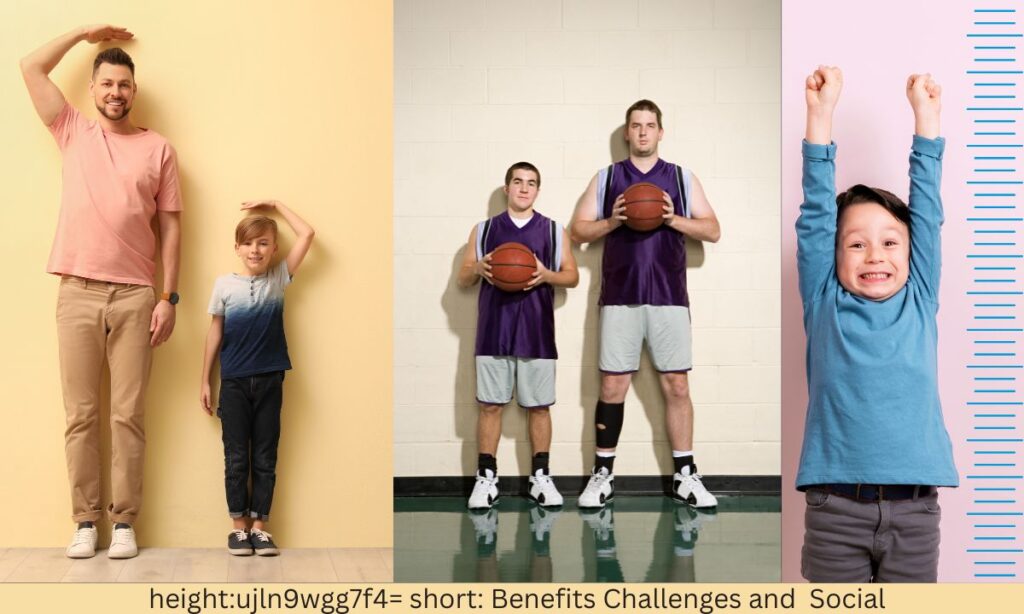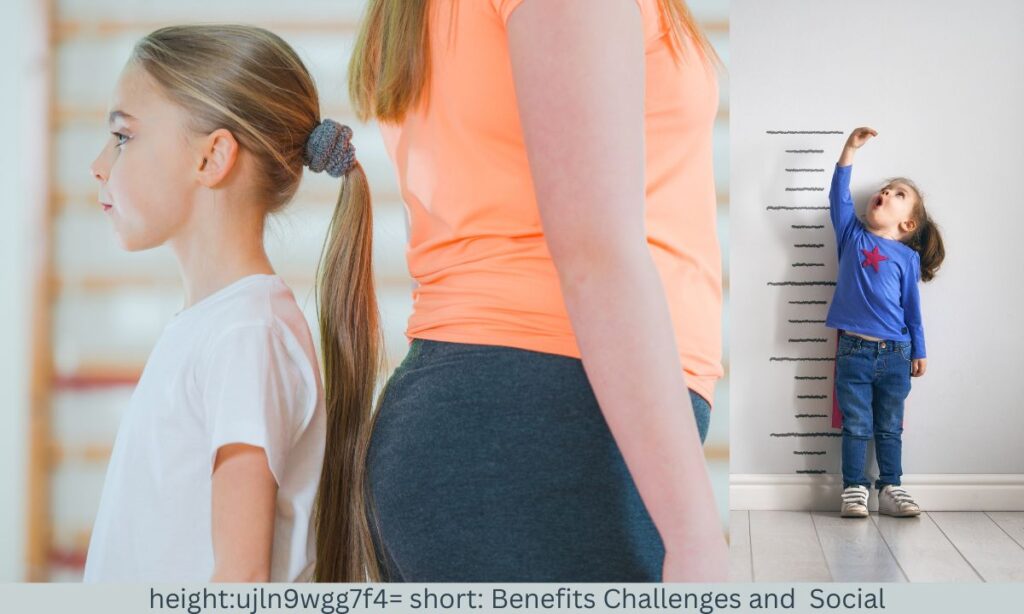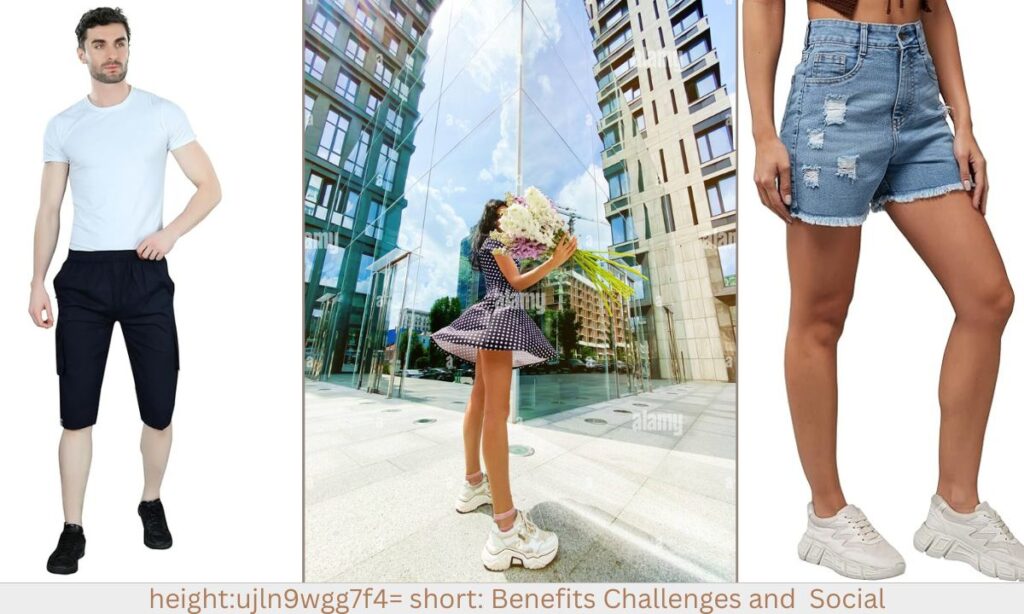height:ujln9wgg7f4= short, Human Height can significantly influence how a person is perceived in society. While much of the world tends to glorify tallness, being short has its own unique set of advantages and challenges. In this article, we’ll explore the benefits and disadvantages of being short, focusing on both men and women. Additionally, we’ll provide insights into what height is considered short, and address some common questions regarding short stature.
What is Considered Short?
Before delving into the benefits and drawbacks of being short, it’s important to define what “short” actually means. While the definition of being short can vary depending on geographic location and cultural factors, here are general guidelines:
| Gender | Average Height (Global) | Height Considered Short |
|---|---|---|
| Men | 5’9” (175 cm) | Below 5’5” (165 cm) |
| Women | 5’4” (162 cm) | Below 5’0” (152 cm) |
In most countries, men under 5’5″ and women under 5’0″ are often considered short. However, it’s essential to remember that “height:ujln9wgg7f4= short” is a subjective term and varies across different cultures and contexts.
Benefits of Being a Short Man

Being a shorter man doesn’t mean you miss out on opportunities. In fact, there are several unique advantages that short men can enjoy:
Better Health and Longevity
Studies suggest that shorter individuals may have a longer lifespan. Shorter people are less likely to suffer from heart disease, as their smaller bodies place less strain on the heart. A study from the National Institute on Aging indicated that shorter individuals may have a lower risk of certain cancers and other age-related diseases.
Read Also: weblogin gitam | Dr joe dispenza wife:
More Agile and Flexible
Shorter men tend to have a lower center of gravity, making them more agile and flexible. This can be beneficial for activities like sports, especially those that require quick reflexes, such as basketball, football, and martial arts.
Fashion Flexibility
Shorter men often have more flexibility when it comes to fashion. They can wear a variety of styles that would be harder to pull off for taller individuals. Slimmer cuts, shorter pants, and fitted clothes tend to complement shorter frames, helping them look more put-together and stylish.
Less Likely to Experience Back Problems
Since shorter men have a more compact body structure, they may have a lower chance of developing back pain. This is especially true for men who don’t carry excess weight, as the spine isn’t as strained compared to taller individuals.
Improved Posture
Shorter people often focus more on maintaining proper posture because they want to stand taller in social situations. This results in a more upright and confident stance, which can have long-term benefits for health and appearance.
Disadvantages of Short Height in Women

While being short has its perks, women with shorter stature may face a few more challenges. Below are some of the disadvantages commonly associated with short height in women:
Read Also: Chip Gaines Heart Attack: | Johnny Hamcheck Face:
Height Discrimination
Women who are short may face height discrimination, particularly in professional settings. Studies have shown that taller women are often perceived as more authoritative and competent in their roles. This perception can sometimes put shorter women at a disadvantage in leadership positions or job interviews.
Challenges in Finding the Right Clothing
Shorter women often face difficulties finding clothes that fit properly. Many clothing brands design their collections for average or taller women, leading to shorter women having to make adjustments to get the perfect fit. While some stores offer petite sizes, the variety is often limited.
Perceived as Less Powerful or Less Confident
In many cultures, height is associated with power and dominance. Shorter women might sometimes be perceived as less powerful or less confident, even if they are perfectly capable. This societal bias can affect how they are treated in both personal and professional settings.
Height in Relationships
Height differences in romantic relationships may also impact how short women feel about their stature. While some prefer their partner to be taller, societal expectations may lead some short women to feel insecure about dating someone who is taller.
Difficulty with Reaching High Places
Everyday tasks such as reaching items on high shelves or adjusting ceiling fixtures can become more challenging for short women. While it might be a minor inconvenience, it’s something that can impact daily life.
What Height is Considered Short?

As previously mentioned, the height considered “short” can vary based on cultural and regional factors. However, there are general benchmarks that help define what might be considered short for both men and women.
- For men, heights under 5’5″ (165 cm) are often seen as short.
- For women, heights under 5’0″ (152 cm) are generally categorized as short.
It’s important to note that while some people may feel insecure about being short, the height itself should not define one’s worth or capabilities. Everyone’s height is unique, and it’s just one aspect of who they are.
Read Also: Lainey Wilson Age | Hunxho Age | Who Is Rowoon Wife
Height and Social Perceptions

Society tends to have specific expectations about height. These perceptions can affect how short individuals are viewed in various social settings. Let’s look at how height influences social perceptions:
| Height Range | Common Social Perceptions |
|---|---|
| Short (Under 5’5″/152 cm) | Often seen as more approachable but less authoritative. |
| Average (5’5”-5’9”/152-175 cm) | Perceived as balanced, neither too intimidating nor too diminutive. |
| Tall (Over 5’9”/175 cm) | Viewed as dominant, confident, and commanding respect. |
It’s clear that height affects social interactions, but personality, skills, and other factors also play crucial roles in how individuals are perceived. Regardless of height, it’s possible to break stereotypes by demonstrating leadership, confidence, and intelligence.
FAQs
1. Is it bad to be short?
A. No, being short is not inherently bad. While short individuals may face certain societal biases, they also enjoy unique advantages such as agility, better health, and less strain on the body.
2. What are the benefits of being short?
A. Short individuals may enjoy better health, longevity, agility, and ease in fashion. Additionally, short men and women can benefit from having a more compact, flexible physique.
3. What height is considered short for a man?
A. For men, a height under 5’5″ (165 cm) is typically considered short in many cultures.
4. Is there a social stigma against being short?
A. While there may be some social stigma associated with being short, particularly for men, the stigma is often based on outdated stereotypes. Many short people break these barriers with confidence and accomplishments.
5. Can height be increased after adolescence?
A. While height is largely determined by genetics and growth plates, some people may experience slight height increases in their 20s through stretching exercises and posture improvement, although the growth plates typically close after puberty.
6. Do short women face discrimination?
A. Short women may sometimes face height discrimination in professional settings or relationships, but this depends on individual circumstances and societal perceptions.
Conclusion
height:ujln9wgg7f4= short, height plays a significant role in how we are perceived, but it’s important to remember that being short has its benefits, such as agility, flexibility, and overall health. Short men and women should embrace their stature, and not let societal expectations or stereotypes define them. Height is just one aspect of who we are, and it doesn’t determine our value or potential.
Embrace your height, whatever it may be, and remember that confidence, talent, and kindness speak louder than any measurement on a height chart.



